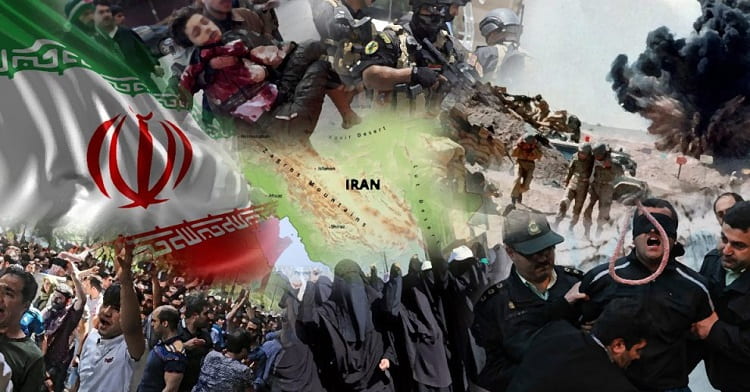Amnesty International’s call to denounce widespread human rights violations in Iran
The human rights situation in Iran will be reviewed on Friday, November 8 at the United Nations Human Rights Council in Geneva. Because of the heinous crimes of the Iranian regime, it is imperative that human consciences and human rights activists take advantage of this worldwide opportunity to condemn the Iranian regime’s horrific acts.
The international community must publicly condemn the deterioration in Iran’s human rights record during the country’s upcoming review session at the UN Human Rights Council in Geneva on 8 November, Amnesty International said.
The organization urged states taking part in Iran’s Universal Periodic Review (UPR) to denounce the widespread human rights violations in the country.
“From horrific execution rates, to the relentless persecution of human rights defenders, rampant discrimination against women and minorities, and ongoing crimes against humanity, the catalogue of appalling violations recorded in Iran reveals a sharp deterioration in its human rights record,” said Philip Luther, Research and Advocacy Director for the Middle East and North Africa at Amnesty International.
“Iran’s upcoming UN human rights review session offers a crucial opportunity for the international community to send a strong and clear message to the Iranian authorities that its shocking disregard for human rights will not be tolerated,” he added.
Also on October 25, Amnesty International described an amputation sentenced handed down by Iran’s Judiciary as torture.
Even as news of astronomical embezzlement and corruption cases spread by the Islamic Republic authorities and their affiliates continues to spread, the Mazandaran judiciary public relations office on Thursday, October 2 announced an amputation sentence as punishment for “robbery” for a “professional burglar” in this province.
Responding to the Iranian authorities’ announcement that they had amputated the hand of a man imprisoned for theft in a prison in Sari in the northern province of Mazandaran, Amnesty International said: “By carrying out this unspeakably cruel punishment, the Iranian authorities have committed torture which is a crime under international law”Today, it is imperative more than ever, that we strongly support the Iranian resistance who spread the Iranian people’s voice to the world in the case of human rights.
On the World Day Against Execution, Mrs. Maryam Rajavi, the leader of the Iranian opposition, criticized ongoing executions by the Iranian regime and said it violates international human rights conventions.
Mrs. Rajavi, whose movement includes the People’s Mojahedin Organization of Iran (PMOI), or Mujahedin-e-Khalq (MEK), said:
Over the past 40 years, the cycle of executions of youths in Iran actually perpetuated the rule of the mullahs’ religious tyranny. Such bloody insanity has created an atmosphere of suppression and terror crucial to preserving the mullahs’ decadent regime, on the one hand. And on the other, it provided a mechanism for training ruthless mercenaries to take on the rule.
Their sacrifice was not only significant in exposing the mullahs’ religious dictatorship as a regime of executions and slaughter, but an effective historical element contributing to the abolition of the death penalty in Iran and the world. Without doubt, when the clerical regime is overthrown, the death penalty will no longer enjoy a mainstay in the world.
Mrs. Rajavi urged the global community to stand up to the regime which is the main threat to global peace and security. She said all governments need to make their ties and commerce with the clerical regime contingent on end to executions and torture in Iran. The dossier on human rights abuses and massacre of political prisoners in Iran must be referred to the UN Security Council and the International Tribunal, Maryam Rajavi said.
The United Nations must pressure the clerical
regime to admit to Iran their fact-finding delegation to visit prisons where
political prisoners are detained.
And the international community must recognize the right of the people
of Iran to a sovereign republic.
Mrs. Rajavi reiterated that since 2013 when Hassan Rouhani took office, some 4,000 people have been executed in Iran, including youth under the age of 18.
